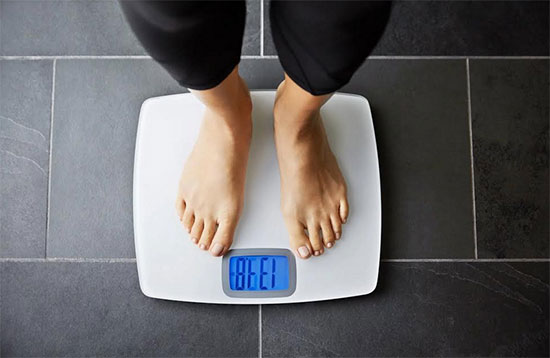NEWS

Women always get confused about how to combat hypothyroidism. Once you start living with hypothyroidism, you will have to witness symptoms like achy joints, fatigue, and weight gain.
Weight gain a huge problem for women who want to look fit and healthy. Weight gain can lead you do not fit in your old jeans can lead to fatigue and achy joints, and they can make exercise a routine. Also, women with hypothyroidism may experience times when they feel that they don’t have the energy to move especially during menstruation. Exercise can help manage symptoms that include weight gain, fatigue, and joint stiffness; moreover, regular exercise plays a vital role in your menstrual cycle.
While physical therapists believe that no single routine is suitable for every beautiful lady out there. They all agree that getting regular exercise is essential for anyone with hypothyroidism. And if you are a career women then a little bit of exercise will also work. Proper exercise not only helps with symptom management but can help in boosting your metabolism.
Exercising here doesn’t mean that you have to run a marathon to get the benefits of exercise. Every patient with hypothyroidism should start slowly, stretching, and weight-bearing exercises and then can move to increase their exercising level as their tolerance grows.
In place of running or other high-impact aerobic exercises that would generally lead to weight loss, you can begin with low-impact exercises such as swimming and walking and weight-bearing exercises.
You can exercise five to seven days a week whenever possible and don’t go for the high-intensity activities, walking, utilizing an exercise bike, or swimming is also sufficient.
Managing exercise levels up is generally going to help with any muscle weakness that may have set in, and with general fatigue. Also, getting the heart rate up 50 percent of max heart rate can help the side effects like depression, and exercise can help with depression.” Says Bealko, lower-impact exercise, such as weight training and yoga, also builds muscle, which aids in weight maintenance.
When you have hypothyroidism, regular exercise can help you:
 Often, one of the first symptoms people with hypothyroidism face is weight gain. While taking the right dosage of the medication for hypothyroidism can help relieve other symptoms of the disease but won’t lead to immediate weight loss. So, losing weight becomes essential to many, both to reduce any added stress on joints, and boost self-esteem. Physical therapists suggest low-impact cardiovascular exercises that include cycling, swimming, elliptical training, and walking. As you increase your fitness level, talk to your doctor about moving on to more intense cardio workouts.
Often, one of the first symptoms people with hypothyroidism face is weight gain. While taking the right dosage of the medication for hypothyroidism can help relieve other symptoms of the disease but won’t lead to immediate weight loss. So, losing weight becomes essential to many, both to reduce any added stress on joints, and boost self-esteem. Physical therapists suggest low-impact cardiovascular exercises that include cycling, swimming, elliptical training, and walking. As you increase your fitness level, talk to your doctor about moving on to more intense cardio workouts.
 While cardio exercises may help people drop weight with exercises such as weightlifting and strength training, help maintain the weight off because muscle requires more energy to manage soft tissue or fat. You can burn more calories by developing and maintaining muscle than having fat as it can help in adding a weight-training program to your routine. At the same time, weightlifting enables you to ward off weight gain and help in boosting your metabolism that is beneficial in improving overall strength.
While cardio exercises may help people drop weight with exercises such as weightlifting and strength training, help maintain the weight off because muscle requires more energy to manage soft tissue or fat. You can burn more calories by developing and maintaining muscle than having fat as it can help in adding a weight-training program to your routine. At the same time, weightlifting enables you to ward off weight gain and help in boosting your metabolism that is beneficial in improving overall strength.
 When you start with an exercise routine, prefer gentle stretching or simple yoga, especially if you experience joint pain. Swimming and walking in a pool are excellent options, as the water helps in reducing stress and tension on joints.
When you start with an exercise routine, prefer gentle stretching or simple yoga, especially if you experience joint pain. Swimming and walking in a pool are excellent options, as the water helps in reducing stress and tension on joints.
 Hypothyroidism brings depression. The aerobic exercises like biking, walking, elliptical training, and swimming can help in increasing metabolism, improving energy, and relieving depression.
Hypothyroidism brings depression. The aerobic exercises like biking, walking, elliptical training, and swimming can help in increasing metabolism, improving energy, and relieving depression.
 Any exercise you perform or just minutes of a walk can help in boosting your energy. More energy means more productivity.
Any exercise you perform or just minutes of a walk can help in boosting your energy. More energy means more productivity.
 In addition to building strength, and increasing muscle mass can help in improving stability and balance. You can use weight machines, body-weight exercises, and free weights, to help increase muscle mass. Pilates and more intense yoga, like Bikram, Ashtanga, and Vinyasa, also work well. An added benefit is that muscle helps ward off osteoporosis, a common concern of women — who have the highest incidence of hypothyroidism.
In addition to building strength, and increasing muscle mass can help in improving stability and balance. You can use weight machines, body-weight exercises, and free weights, to help increase muscle mass. Pilates and more intense yoga, like Bikram, Ashtanga, and Vinyasa, also work well. An added benefit is that muscle helps ward off osteoporosis, a common concern of women — who have the highest incidence of hypothyroidism.
Recent Post